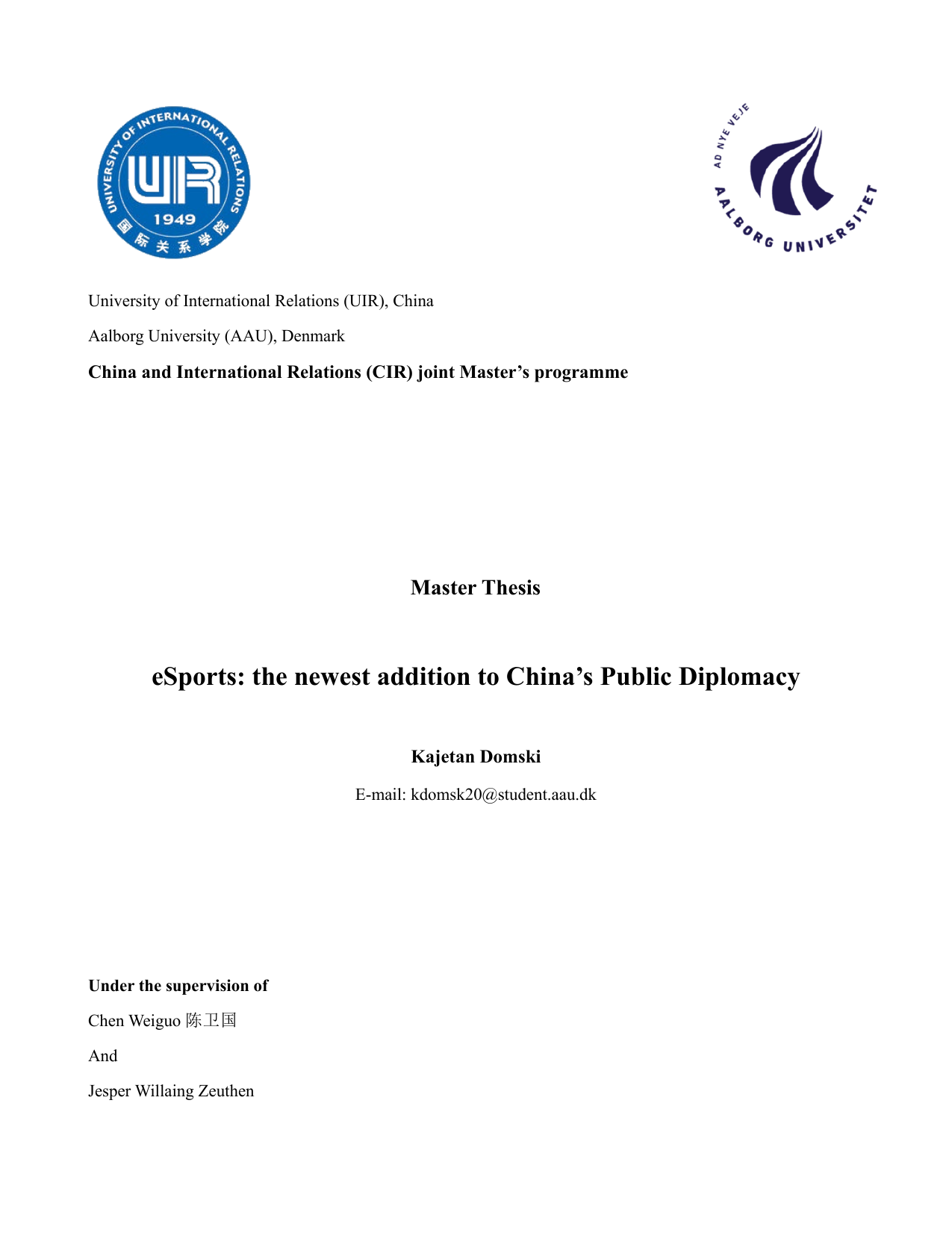
eSports: the newest addition to China's Public Diplomacy
Author
Term
4. term
Publication year
2022
Submitted on
2022-05-23
Pages
74
Abstract
Electronic sports (or eSports), similarly to traditional sports, due to the extensive broadcasting of events internationally, has a potential of becoming a soft power resource in countries’ Public Diplomacy (PD) endeavours. Sports diplomacy has been a popular topic in recent years, discovering states’ ability to improve their international image, while players and teams do the same by winning international competitions. However, eSports has an additional value in PD as it can potentially sneak in cultural and political values through artistic video game content. Even so, there has been little to no research on the use of eSports in Public Diplomacy, which will be presented in this thesis. To achieve that, China has been used as a basis for this single-case study, as this country’s eSports industry is the biggest in the world in terms of revenue and the size of audiences it attracts. Additionally, the introduced in August 2021 game restrictions for adolescents in China create a dilemma for the future ability of China’s actors to use eSports in PD. Therefore, the research question, “how can Chinese state and non-state actors use eSports in Public Diplomacy (PD)?” explores this problem by taking non-state actors into consideration as important partners and independent actors that create PD. This also implies challenging the traditional, state-centric view on China’s Public Diplomacy. The research was explored by using PD theories, with the inclusion of the Domestic Dimension concept that explains how non-state actors can be receivers of Public Diplomacy as well as partners and independent public diplomats. Concepts like soft and smart power and strategic narrative helped understand how eSports can be turned into a soft power resource, while fragmented authoritarianism was used as a framework to challenge the monolithic, state-centred view of China. The findings have shown that various state and non-state actors in China have already employed eSports in PD, however the start of the pandemic and the introduction of aforementioned restrictions have halted such endeavours. State actors like the Ministry of Culture adapted eSports into cultural diplomacy by giving it a label of a form of China’s digital culture, which then was embedded in existing projects like the Belt and Road Initiative. Non-state actors like Tencent or city governments often supported state actors’ strategies by organising internationally broadcast events. Moreover, Tencent owns many international and local game developers and focuses on creating eSports titles that present Chinese culture and China in a good light. Concluding, the research has shown that even while facing the current restrictive difficulties, eSports as a PD tool will continue to grow in China. The state will limit imported eSports titles, whereas companies like Tencent can keep creating eSports and video game content that acts as a part of China’s cultural diplomacy.
Keywords
eSports ; Public Diplomacy ; China ; Soft Power ; Tencent ; Diplomacy ; eSports diplomacy ; e-sports ; non-state actors
Documents
